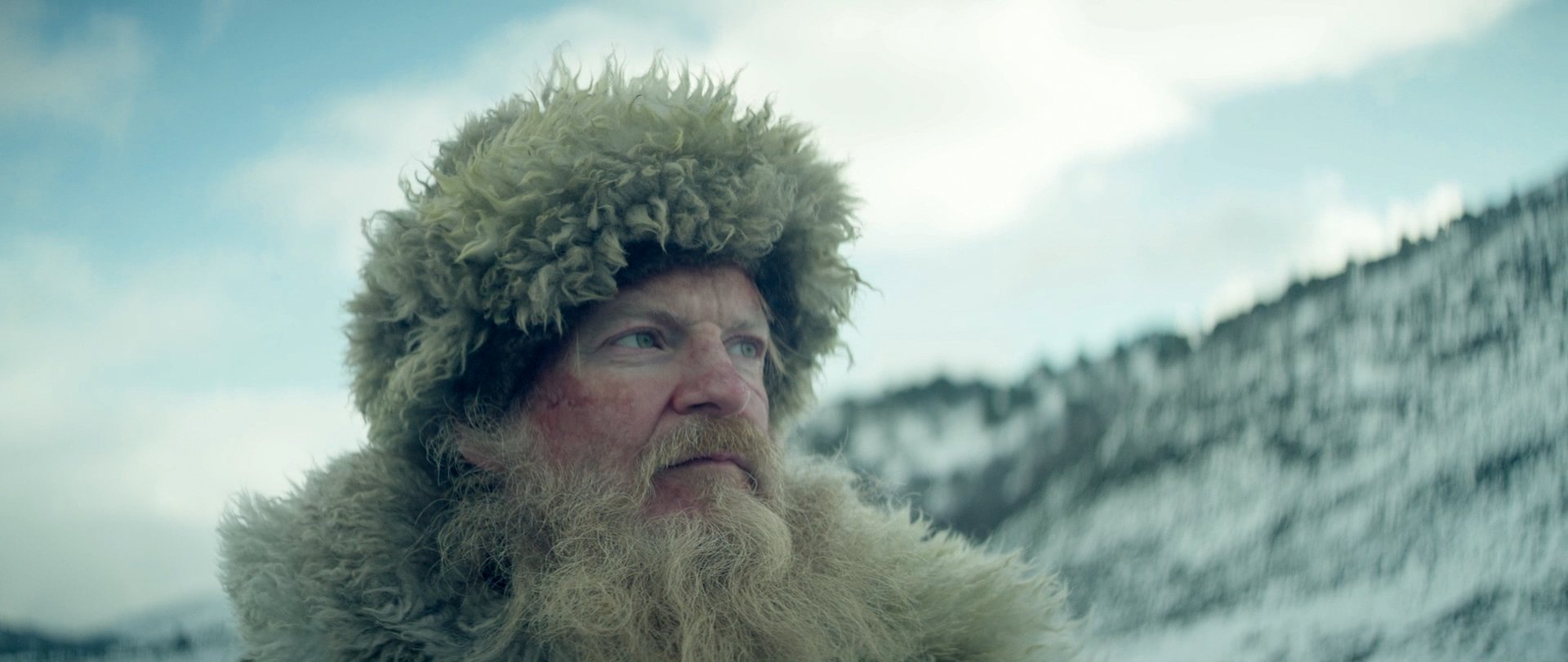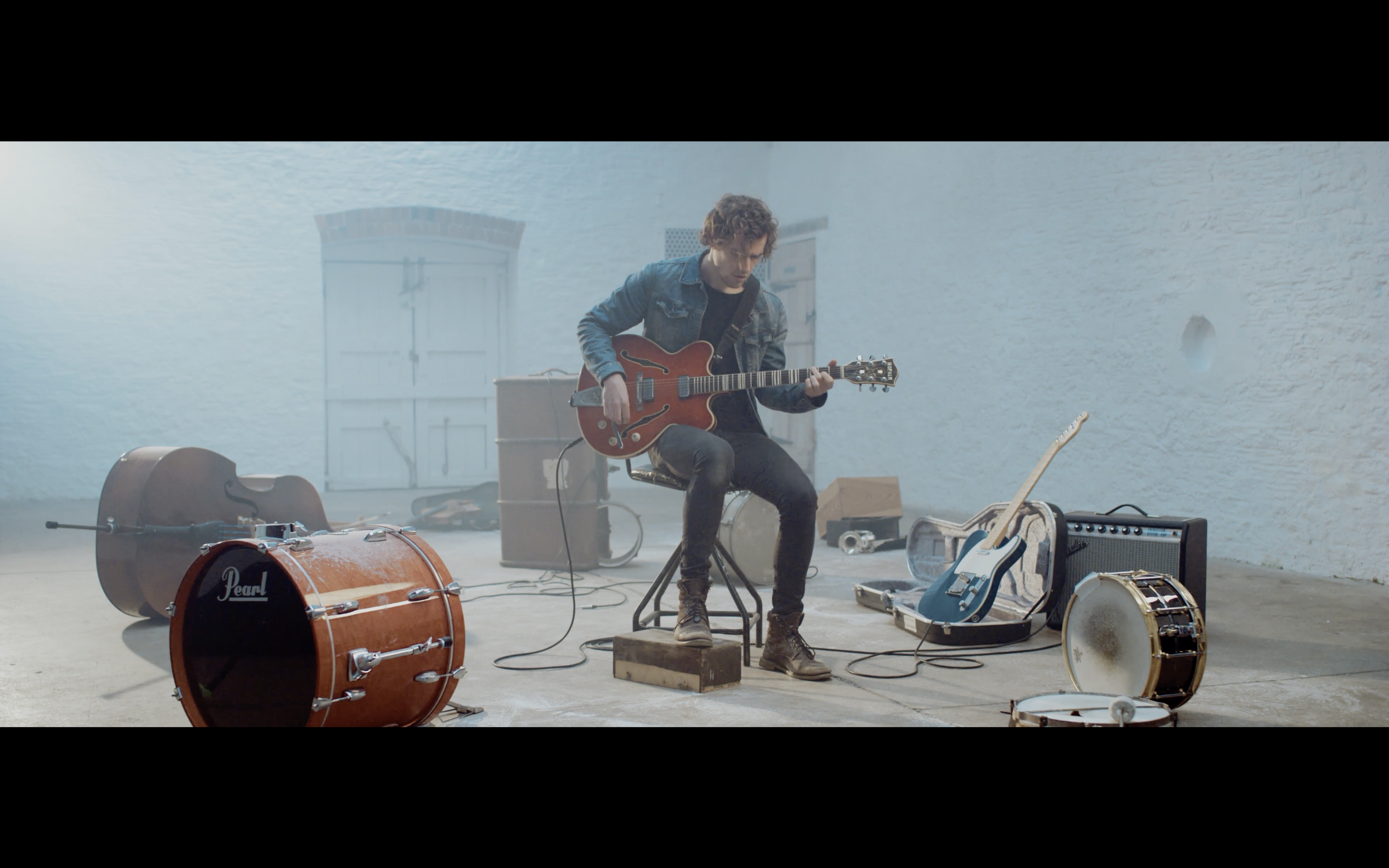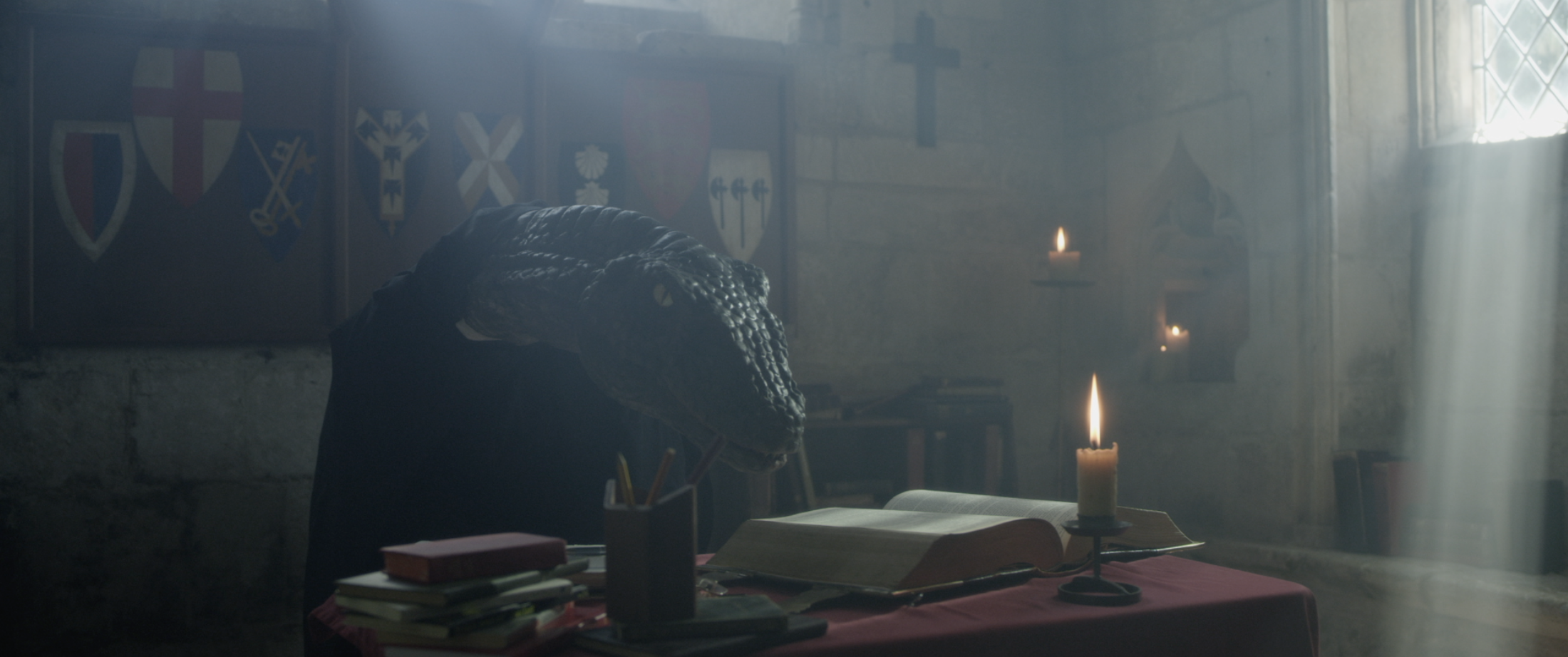Thom Heald (DP & camera operator)
On his path into the industry, skateboarding, wellbeing
Miles:
12121… Okay. So Tom - great to have you!
Thom:
Thanks Miles, happy to be here.
Miles:
So for those who don't know you, how did you get into the industry?
Thom:
I started studying film and TV at A-level, which got me shooting and editing my own stuff.
It had a practical component and we had a bit of a crew going on between us students.
That got me into university, getting a BA and then later - a masters.
The BA gave me ‘university experience’ but no real-world experience. Doing the masters gave me a bit more time to figure out what I was going to do..
Thom (cont.):
Once I had finished uni, I went off to do a ski season - something I always wanted to do.
I thought it'd be more interesting to get my education under my belt and go experience life a bit more, before jumping into work.
Miles:
Where was the ski season?
Thom:
The Southern French Alps in serre Chevalier. On that season, I met my now wife - Caroline. We ended up doing five years worth of travelling and ski seasons, back and forth - living in the UK and then different places all around the world: France, Japan, New Zealand, Australia.
In those years, I had bought a camera and had been doing bits of self-shooting, editing jobs while I was skiing.
The last thing I did in those five years on the slopes was working as a skiing cameraman for an Australian ski resort. I’d be shooting GVs around the hill, editing those into a package that would go out on various Australian network channels, news outlets.
Miles:
Did you ever do any action sports filming or were you limited to GVs?
Thom:
Yeah, so I would ski down next to people skiing through powder. I'd follow them off jumps, and I'd try to make it as dynamic as I could.
I grew up watching a lot of skate films, ski films, and was really interested in that action sports filming world.
That was a really interesting, fun job - the kind that I had never really considered might be possible.
Miles:
So what made you take the leap from your former ski-orientated life to what you do now?
When did you leave behind the pizza and french fries (skiing reference)?
Thom:
When I moved back from Australia, I built up enough to put a showreel together.
As well as the skiing work, I had some live OB broadcast work under my belt – OPing for skateboarding surfing competitions. I had also done some stuff for a bike company and more.
Me and Caroline knew that we wanted to move to Bristol, so I started looking for opportunities and jobs around here. It was the summer of 2012. The day before we moved to Bristol, I applied for a job at Aspect (RIP) and got it.
That was obviously a massive boost to the aspirations I had to entering the industry. I hadn't really had much luck in that summer, doing freelance bits but just went straight into Aspect as a camera operator - learning how to light thereafter.
Miles:
Gutted that they’re gone..
What was working for Aspect like?
Thom:
I turned up Aspect still very green. I knew how to shoot and operate a camera but my knowledge of lighting was still very limited because I hadn't come through the traditional route. I didn't know the names of a lot of things and the first few years were an education.
The good thing about Aspect and maybe something true for most small productions and small production companies is that: there was still a real feeling of everyone pitching in together. In the long run - all of us got to do a bit of everything: focus pulling, gaffing, DPing, operating.
Miles:
Do you think it's useful for people to get experience across different roles (where suitable)?
Thom:
Yeah, I think that was massively useful for me and for everyone that has come through that system. If you're siloed in a particular role or job, it can be hard to break out of that. If you have the opportunity to take on those different roles, then you can really see how they each work together.
And now, when I walk onto the set as a DP, having done most of those mentioned roles myself – I’m aware of the possibilities and challenges of each supporting role. So, yeah, I think it gives you a good overview into what it takes to make it all happen.
Miles:
How did you make the jump from employed work to freelancing?
Thom:
There was a bit of a ceiling of what the internal Aspect crew could do on a project.
They got to the point where they were doing bigger projects but using DPs and directors from outside of Aspect, because the clients needed a name or they needed someone with more experience.
I think around the same time, I was also getting offers of freelance work that I was having to turn down because I was full time.
I could only take on so much using my annual leave but I built up a big network of freelancers in Bristol who I thought would be able to support me when I decided to go.
Miles:
How easy was that transition? I know I would be nervous.
Thom:
It was quite smooth actually. There was a period of a few months where they would call me back on a freelance basis, which was like a really good, soft landing, as it were. I met with people like Sarah from Bristol Crew - who was extremely welcoming and helpful, putting me on to people who I still work with to this day.
Miles:
From the people you’ve worked with along the way, has there been any lessons you’ve learnt or bits of wisdom from others you still celebrate?
Thom:
I feel like I learn from everyone that I work with.
I’ve learned how to be more technical from some people, I’ve learned how to be a better person on set from other people.
Miles:
You mentioned you wanted to move to Bristol specifically.
Do you feel that there's a good sort of atmosphere here, or work culture, as opposed to somewhere like London?
Thom:
I think the difference with Bristol is everyone enjoys being in the industry but they don't necessarily take it too seriously, as in: I feel like people have wide and varied interests outside of film here. They enjoy the fact that as freelancers - you can work hard when you're working and enjoy your life outside of that.
Miles:
This is a very good segue. How do you like to enjoy life outside of the industry?
Thom:
I was teeing that up for you Miles, yeah.
Miles:
There’s a theme with your photos. It would be strange if this didn’t get a mention.
Miles (cont.):
So, Thom - how did you start skating?
Thom:
In 2020, my son was born, and covid happened. So there was… a lot of free time.
I had always had a skateboard for transport, but I decided to take it up and start using it a bit more seriously, for want of a better word. So I'd just cruise around my local park, or push my son around in his pram on the skateboard, and we'd go places.
And that felt like a nice way for me to get some exercise and to get us both out of the house and see the world.
Thom (cont.):
I guess I just started getting a little bit better and better. I started going to skate parks, riding ramps with more of a view to learn more tricks.
One of the really lovely things I've found about taking up skateboarding is: wherever you go and whoever’s there - you’re more than likely to get chatting.
Everyone is really supportive and knows how hard it is to progress and to learn new things.
People often think ‘Oh, I'm not very good. People will laugh at me’ but really the opposite is true. Everybody wants you to do well and everyone wants you to push yourself, increase your own skill level. They know how hard it is to do that.
Miles:
Are there any transferable skills in eating the odd bit of concrete?
Thom:
“I feel like skateboarding teaches you resilience.
You can try a trick 100 times and not land it. Keep trying though and you’ll eventually get it.
And I guess the similarity there with the industry is that yeah - you just have to keep trying, pushing and networking. Trying different things is good too - not being afraid to push the boundaries.
It's all building towards that amalgamation of experience where one day, you'll just be able to walk into a room and say within five minutes: “cameras over here, lights over there, subject there”.
You just build up that wealth of experience and knowledge, the same way that you’d be able to turn up and do a trick at a skatepark. It's just muscle memory after a while.
Miles:
What qualities do you value in those you work with?
Thom:
For me, like the number one rule in the industry is don't be a dick. That seems simple, but still, some people fall foul.
I also really value good humour.
There's a lot of times when the job can be difficult or stressful and having someone to turn to and share a joke at the ridiculousness of the situation or whatever - something just to ease the tension - that can really help.
I don't know if we want to name names, but Theo, for example, is brilliant because he turns up with a box full of stuff. He's witty and sharp and proactive. And, yeah, I know that he will have just taken care of things that I don't even need to think about. That kind of forethinking applies to Theo as an AC, or say Dave as a gaffer.



Miles:
You’re a father? I’m not sure if you knew.
How do you think that's changed you as a person? Have any life lessons there thrown themselves over the wall into your work? Whether crisis management, or more?
Thom:
[Thinking] I think having a kid is a really good way of holding up a mirror to yourself and reflecting all of your views and your thoughts, actions right back at you - for better or worse.
Thom:
I’d like to say it's made me more patient, but that's still something that I struggle with.
Miles:
You seem very patient.
Thom:
My delayed gratification ability is non-existent, you know.
Thom:
Maybe, like previous years, if it asked for something to happen on set and it wasn't happening immediately, I would get a bit more frustrated. Whereas now - I'm more Zen and realise that things just take time to happen. Cogs need to turn and it’s a complex machine.
That can be very similar to fatherhood.
A four year old doesn't just do what you ask at the first time.
I think I've learned to be more politically savvy to make things happen.
Miles:
Last of all you’ve mentioned to me before that you have ADD? What are some of the pros of ADD?
Thom:
I'm going through the process at the moment of trying to get a diagnosis but it’s something that I've suspected I've lived with for a long time.
It’s a positive in a way, especially when I'm on set.
If I walk into a room and there's 10 different people there - crew, producers and the director, all asking me technical questions - I can answer them rapidly and not get bogged down in details.
Miles:
Last question Thom. You told me about a group you do - combining talking and skating?
Thom:
It’s called Talk and Skate
Miles:
How did that come about?
Thom:
Yeah, so Talk and Skate started a couple of years ago as an extension of Talk Club - which is an outlet for men to go and to talk about how they're feeling, in a safe space. It’s for people to be able to talk about their mental health.
And the idea is that you go and you give a mark out of 10 of how you're feeling that day and then you can say as much as you want about what's going on for you, in your life at that particular time.
We gather at Campus pool Skate Park in South Bristol. We all go around and we talk for half an hour or so, and then we have an hour skate in the pool … and it's free.
I go fairly regularly, and have hosted on occasions.
Thom (cont.):
I've just found it's it's really important to me to be able to hold that space for for other people, even if maybe that day I felt fine and I feel like ‘I don't need this for myself’, I can see the value that it adds for other people to be able to turn up and talk and get it off their chest.
Shoutout to James and the Campus team for running it.
Miles:
Mental health is still a difficult subject. Ironically, because we all kind of struggle in some way. But, it’s still is - to a degree - a bit of a faux pas to talk about.
I don’t know what you think but it’s often felt to me like the hangup we have as a society is this expectation that talking about mental health opens a pandora's box, somehow breaking our rigid defences - normalising everyone being mentally ill..?
Hopefully realising these things can be a sign of what it definitely is - actual strength. And, just acknowledging being human? Takes practice, I know well though.
Thom:
Yeah, these things already exist. People were just not talking about them, hiding them away and burying them. And that's no good.
I found that anytime I've kind talked about mental health, I've only got back positive stuff. People have been happy that it's being spoken about… good stuff.
Miles:
Thom, thanks for chatting man.
Links:
http://www.thomheald.com/
https://www.instagram.com/teeheald/












